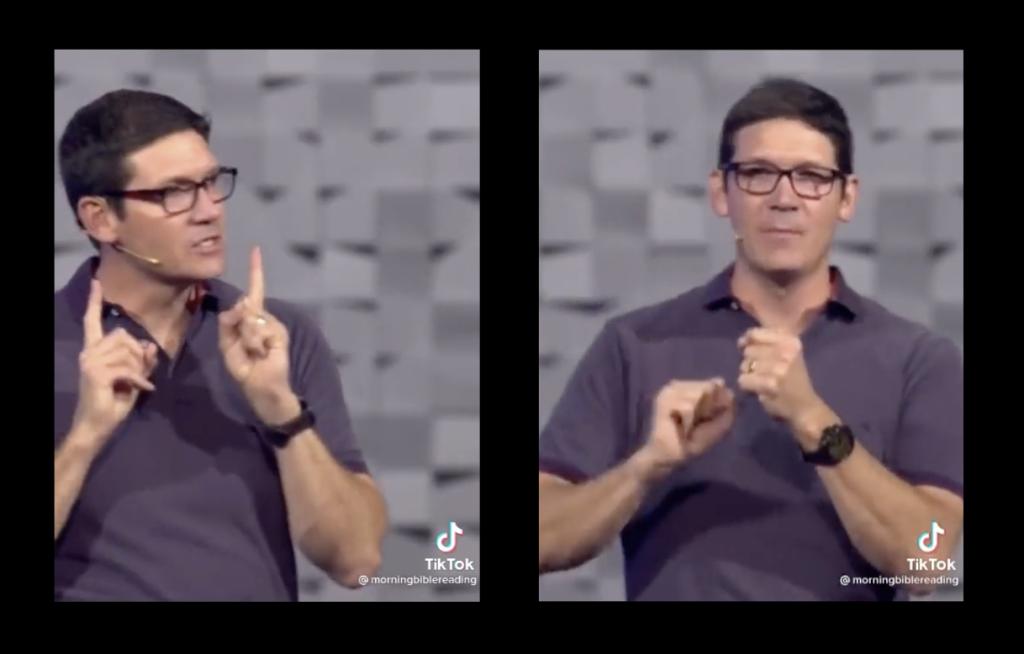 In 1971 a Lawrence man named Bill James was the last person from the state of Kansas to be sent to fight in Vietnam. He spent 2 years overseas then came back to Lawrence to finish college at KU.
In 1971 a Lawrence man named Bill James was the last person from the state of Kansas to be sent to fight in Vietnam. He spent 2 years overseas then came back to Lawrence to finish college at KU.
By 1975 he had degrees in English, Economics, Education, but his passion was baseball, & he wanted to be a writer. James took a job as a night watchman Stokely-Van Camps Pork & Beans cannery in Lawrence & started writing articles about baseball.
His method was interesting. James got really into the statistics of baseball. He collected every statistic that he could find. This was 1975, so there was no internet, computers, or spread sheets as we know them. Statistics were done by hand. James kept a mountain of them. For his articles he’d ask interesting questions like: “Which pitchers allow the most stolen bases?” He’d apply statistical analysis to answer the questions & write about why it mattered, or didn’t.
The only problem was there wasn’t a lot of interest in his work. In 1977, hoping to gain a wider audience he self published a book called, 1977 Baseball Abstract: Featuring 18 Categories of Statistical Information that you Just Can’t Find Anywhere Else. It was mimeographed & stapled together. He placed a 1 inch advertisement in the back of The Sporting News, and sold 75 copies.
In his abstract Bill James created several new statistical categories nobody had ever thought of before like: Runs Created: which is a way to quantify a player’s contribution to each run scored & a team’s expected runs scored in a season. Range Factor: a way to quantify defensive play. Win Shares: percentage of a win was due to a particular player. Major League Equivalency: way to predict how a minor league player is likely to perform in the majors. He invented 15-20 new categories for his abstract, but he was writing, too. In fact, he was making an argument.
James believed that conventional wisdom for baseball scouting & player evaluation was outdated. It was too subjective, & he kind of ripped on the old school of baseball management. He said things like, “The way that managers have tested the limits of starting pitchers for the last century is quite a bit like the way they used to test for witches, by pond dunking,” which is, well, an amazing quote. He railed against Batting Average—a bad indicator of runs scored, against bunting & stealing bases—not worth the risk, against the heavy reliance on batting average and home runs. He said they should use newer statistics such as On Base Percentage, Slugging Percentage, and OPS instead.
James conceived of a whole new way to assemble a team not based on star power or traditional player roles, but solely on generating runs. He named it Sabermetrics after the Society for American Baseball Research. He became a kind of prophet for an objective or scientific approach to baseball. His popularity grew & grew (partly due to invention of fantasy league baseball). Managers & GMs began to use his numbers, but they didn’t buy into his philosophy.
For 25 years he wrote books & articles & put out all these statistics. Baseball front offices would use his analysis here & there, but nobody fully bought in until 2002, when Billy Beane (otherwise known as Brad Pitt) was the GM of the Oakland A’s. He had just lost his 3 best players to free agency because he couldn’t afford them anymore. So, Beane used Sabermetrics to construct his team & won the division with the lowest payroll in baseball.
In 2003 John Henry, then the new owner of the Boston Red Sox and a former reader of James’ Abstract, hired Bill James, converted to Sabermetrics, and went on to win their 1st World Series Championship in 86 years. James still works for Boston. He now has 3 World Series rings… and he changed the game of baseball forever.
Can you imagine? Some guy sitting around in the basement of a Pork & Beans factory playing with baseball statistics came to challenge the conventional wisdom of professional baseball leadership—guys that had been doing this for 40-50 years? He was a voice crying out in the wilderness for 25 years before anyone took him seriously. 25 years…
That’s what it’s like to be a prophet such as John the Baptist—a voice crying out in the wilderness for years… nobody listens, nobody changes. Which is how it was for Israel. They never learned… never changed.
It actually presents a pretty good question for all of us: Do we believe people can change?
I supposed you could take one of 3 positions on this.
- Yes, people can change. If you want to read the sappiest corner of the Internet, just search quotations about how people can change… might want to have some peanuts handy, or something salty because it is saccharine.
- No, people don’t change. I think it was George Carlin who said “People don’t change they just become more of who they are.” The Greek Philosopher Heraclitus had the same idea in mind when he coined the phrase “Character is destiny,” …we don’t really change, our character just comes out for better or worse.
- Change is possible: but it’s really slow, and rare, & you have to want it… this is really one of the things that sets Christianity apart—we believe people can change if God gets ahold of their life. We can be transformed, & become New Creation. Part of this position involves the admission that change is difficult because it requires tension & pain, and it usually starts with a voice crying out in the wilderness.
Some of the greatest stories Christians have told are about a person can change…
Anybody read the great novel by Victor Hugo Les Miserables? It’s only a good 1200 pages, but it’s a story of transformation. A good man steals a loaf of bread to feed his hungry sister and her children. He’s sent to prison for 20 years, where he becomes bitter & hard & tough. He finally escapes and, because of a priest who shows him an act of unmerited grace, he’s transformed. The Gospel is all over Les Miserables.
Anybody seen the movie American History X with Ed Norton? It’s a great story of transformation from a racist skinhead, to a guy committed to loving his fellow man. It all happens because of grace & friendship & unconditional love. The Gospel is all over American History X.
A story we tell during Christmas is Charles Dickens’ A Christmas Carol… (also the Bill Murray move Scrooged version, or It’s a Wonderful Life). It’s about a hardhearted, lonely, bitter man who gets a glimpse of the way his life impacts other people, and he changes, he transforms & begins to care for others. The Gospel is all over A Christmas Carol.
Anybody seen a movie called Dumb & Dumber? There is no Gospel in Dumb & Dumber. They never change, they start out dumb and only get dumber.
…I digress. The story we tell as Christians is that people can change. Yet, in all of those stories the pivotal point, the crux move never comes as the result of an idea. People don’t usually change because of information. They change because of an embodied reality. Love gets hands & feet… some skin on it. For the most part this is the only way people truly change. We change in response to an embodied reality.
Edwin Friedman, the great psychologist who talked a lot about how family systems can change, once wrote: “The colossal misunderstanding of our time is the assumption that insight will work with people who are unmotivated to change. Communication does not depend on syntax, or eloquence, or rhetoric, or articulation but on the emotional context in which the message is being heard.”
In other words, people don’t change because of information. They have to have a context for change. Change happens in relationship more than anything. It’s an embodied reality.
You think about Bill James & Sabermetrics—25 years he spent trying to convince people to embrace his philosophy. He had all kinds of mind-blowing information, and it had a small impact, but not any real significant change. Until his philosophy became embodied in the Oakland A’s.
Then the change that happened was like a revolution. That’s John the Baptist in the wilderness, calling people to change not just their mind or their attitude, but the entire direction of their lives.
And, the fact that John is out in the wilderness is not a random detail. If the holiest place on earth was the temple, then Jerusalem, the holy city, and then the Holy Land… then the Wilderness was about as far from holy as you could get. The wilderness is for wandering, futility, waiting, & testing. If you want your sins forgiven, go to temple, not the wilderness. But John went as far away from the temple as he could get…
And we’re told he’s, ”proclaiming a baptism of repentance for the forgiveness of sins.” Baptism was the ritual that Gentile converts had to undergo in order to convert to Judaism. John’s isn’t a baptism of conversion; but of repentance.
We usually take the word “repentance” to mean: feel “sorry” for bad things we’ve done & the promise to stop doing them. But repentance is more serious than that. The Greek word for repent is the word: metanoia. This involves a substantive change of direction in life. To repent means to alter the course of your entire life. You’re going one way. You stop, & go a different direction. Our English word paranoia shares a Greek root. Paranoia means returning to the same delusions over & over. Metanoia—repentance—is the opposite of that. It means to change course, change direction. It’s not just all in your head. It’s a fully embodied change.
John seems intent on not making it too easy for people. Not only does he hike all they way out into the wilderness by the Jordan, far from the temple, but we’re told that he starts his speech by insulting them:
“7John said to the crowds that came out to be baptized by him, “You brood of vipers! Who warned you to flee from the wrath to come?
Why does John want to be so mean to the people? They came a long way to hear him & he calls them names? Then he starts in on them about repentance.
“Do not begin to say to yourselves, ‘We have Abraham as our ancestor’; for I tell you, God is able from these stones to raise up children to Abraham.”
I actually think Eugene Peterson’s The Message version can help us understand exactly what John is saying… it goes like this:
“Brood of snakes! What do you think you’re doing slithering down here to the river? Do you think a little water on your snakeskins is going to deflect God’s judgment? It’s your life that must change, not your skin. And don’t think you can pull rank by claiming Abraham as ‘father.’ Being a child of Abraham is neither here nor there; children of Abraham are a dime a dozen. God can make children from stones if he wants. What counts is your life. Is it green & blossoming? Because if it’s deadwood, it goes on the fire.”
For the Jewish people this was a radical message. They put so much faith in their status as children of Abraham. John’s saying: your status doesn’t mean anything. What counts is your life. What’s embodied in your life? John didn’t seem to think it was that great… hence the brood of vipers.
Israel had been blessed to be a blessing to the world around them. Not to sit around drawing a family tree, arguing about who’s in & who’s out. The world was a mess, & needed a change. But change won’t come because of facts about their family heritage & status as God’s chosen people.
Change doesn’t usually come from information at all. It comes because of an embodied reality. Love gets hands & feet… gets some skin on it. That’s what JTB called them to… “Bear fruits worthy of repentance,” he said. Your life has to bear good fruit.
And this call seems to really sink in for the people, because they ask John: “What then should we do?” This is what John tells them:
“Whoever has two coats must share with anyone who has none; and whoever has food must do likewise.” 12 Even tax collectors came to be baptized, and they asked him, “Teacher, what should we do?” 13 He said to them, “Collect no more than the amount prescribed for you. 14 Soldiers also asked him, “And we, what should we do?” He said to them, “Do not extort money from anyone by threats or false accusation, and be satisfied with your wages.”
John mentions three classes of people here:
Tax Collectors… we know all about these guys. He tells them not to get rich off people. Just collect what people should pay and no more.
Then there were soldiers—members of the Roman army—to which he says, “Do not extort money from anyone by threats or false accusation, and be satisfied with your wages.”The Greek word for extort is: diaseiō, which means “shake violently”… it’s where we get concept of a “shake down.” John tells them to knock it off.
Lastly, to the normal everyday people he says: “Whoever has two coats must share with anyone who has none; and whoever has food must do likewise.” The Greek word used here is the word for a tunic, or the inner garment that was like a long nightshirt. Most people had 2 tunics—one for everyday wear and one for Sabbath. John told them that if you have two of these & your neighbor has none, then you should give your extra to your neighbor. In other words, the needs of your neighbor are more pressing than keeping your Sabbath tunic all nice & clean.
What I find fascinating is that he doesn’t tell any of them to quit their jobs. He doesn’t tell the soldier to desert the army…just to stop shaking people down. He doesn’t tell tax collector to stop working for the Romans …just to stop extorting money out of people. He doesn’t tell workaday people to start a movement, a foundation, a 501c3, or to escape to desert…just to care for their neighbors.
I think this gives really important insight into what repentance truly is. It doesn’t mean you have to quit your job & move to Africa. You don’t have to sell your house or empty your bank account. John says that repentance isn’t so much about doing something new as it is doing what you’ve always done toward a different aim… to move it in a different direction.
To repent is to stop moving in the direction of selfishness, violence, extortion, and every man for himself, and to start moving in the direction of loving one another. That’s an embodied change. That’s repentance.
In the calculus of the Kingdom of God, deeds of compassion and brotherly love outweigh the practice of religious piety. A ritual baptism won’t change the world. The birthright as children of Abraham won’t change the world. Only when they begin to embody a new way of living will they begin to fulfill their mission to the Gentiles.
John’s call to repentance, isn’t just about feeling bad when you do something wrong & promising God not to do it again. Repentance is a change in the trajectory of your life. John knows the only way those outside the people of God would ever be able to change would be if they see a better way of life embodied in a people.
Stanley Hauerwas often says “A Christian is somebody who has met one.” Think about that for a moment.
All of the arguing, convincing, or answering in the world is pretty much just raw data on the page—Sabermetrics—until they are embodied in a people. Until the gospel takes on hands and feet and a body, it changes very little. The gospel needs a church.
There are so many examples of how this has happened in the life of Redemption Church. I want us to hear one of those examples today:
For the rest of this message, you can listen at: http://www.redemptionchurchkc.squarespace.com/news/2015/12/14/advent-2015-03-change-tim-suttle …start in at about 36:00 to hear the interview with Larry Dull.













